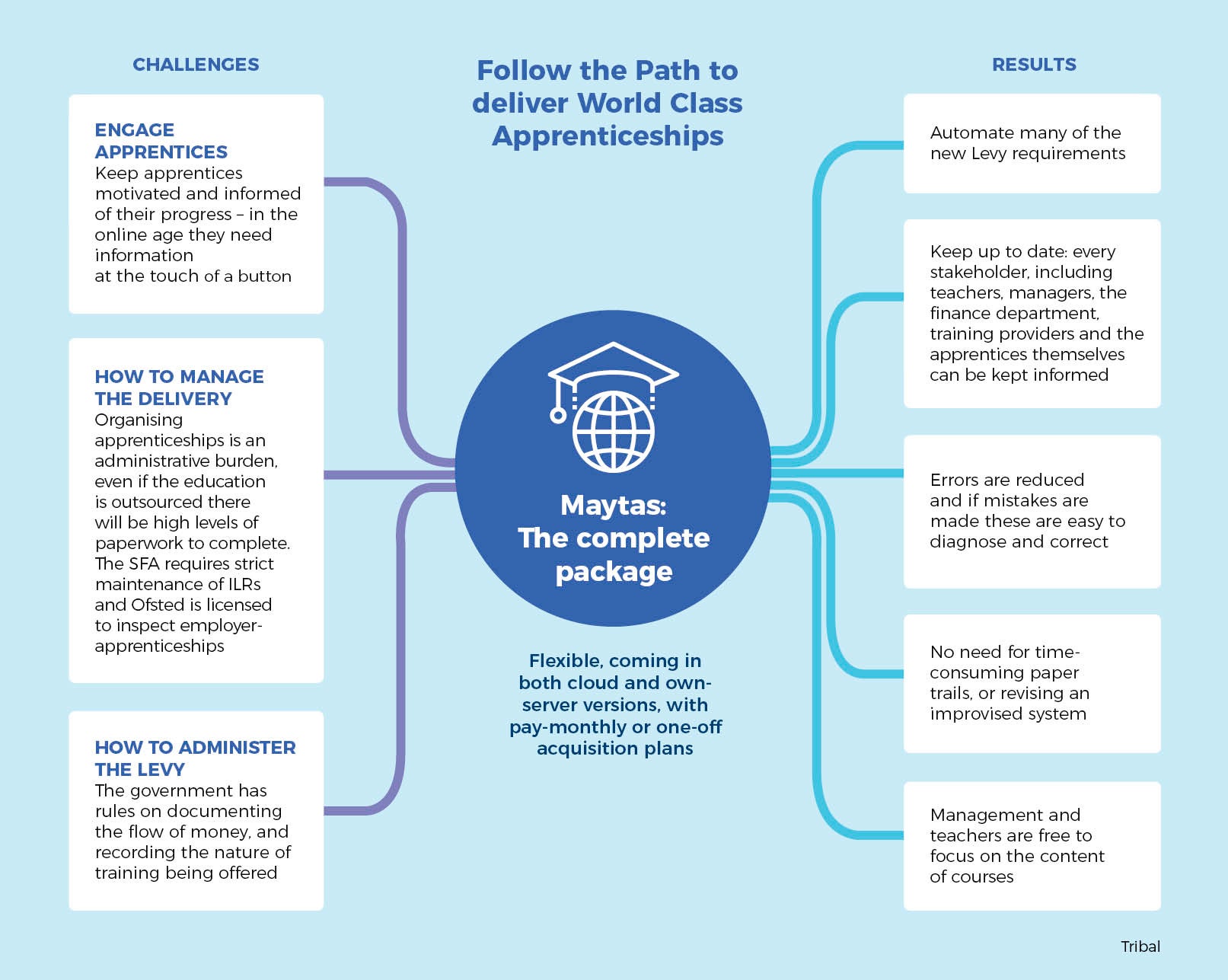We are on the brink of a golden era for apprenticeships. The new Apprenticeship Levy makes it almost compulsory for employers to offer apprenticeship training and it’s triggering a national rethink about how apprenticeships are delivered.
Whilst some employers will turn to training providers to deliver the education, others are creating their own internal apprenticeships so they can shape and create the workforce they need for the future. Germany has long benefited from industrial apprenticeships, and it’s wonderful to see the UK embarking on the same track.
However, the Levy is more than a financial requirement to invest. It brings with it a long list of compliance rules and regulations. Companies seeking to maximise their involvement with apprenticeships need to think long and hard about how to get organised.
There are three main challenges. The first to is to engage the apprentices. They need to be motivated and kept informed of their progress. In the online age they need information at the touch of a button.
The second is how to manage the apprenticeships. Organising apprenticeships is an administrative burden. The Skills Funding Agency requires strict maintenance of Learner Records. The government also has rules on documenting the flow of money and recording the nature of training being offered. Even if the education is outsourced, there is still a lot of paperwork to complete.
The third is ensuring quality and being able to demonstrate this under inspection. Ofsted is licensed to inspect employer-apprenticeships, so companies need to be ready. A poor inspection outcome will not just be a black mark on their training provision, it risks damage to an employer’s overall company brand.
The goal is to give employers the tools they need to deliver world-class apprenticeships
As a result of these duties many employers are feeling worried by the new Levy. They needn’t be. With the right software it is possible to automate many of the new requirements and every stakeholder, including teachers, managers, the finance department, training providers, and the apprentices themselves can be kept up to date. It is far preferable than the alternative: doing it by paper, or by an improvised system.
Take an employer like Leonardo, the multinational aerospace group. It is already an evangelist for apprenticeships, which act as a talent pipeline for its 8,500 workforce. Leonardo’s apprenticeships were rated Grade 1 (outstanding) by Ofsted at the last inspection. The company offers around 200 apprenticeships and wanted to do this without employing a large team of MI managers, quality and compliance mangers, and data administrators. It also holds grants from the Skills Funding Agency and Skills Development Scotland, who need proof of how their money is spent.
To run apprenticeships efficiently Leonardo implemented a software solution from Tribal Group called Maytas – a complete package designed for the administration of apprenticeships.
Maytas offers an intuitive interface for the entry of all relevant information. It automatically prepares data for submissions to oversight bodies, such as the Skills Funding Agency and Ofsted. Apprentices can log on remotely to track their progress, look at calendars and see who to talk to. There are in-built feedback functions, so courses can be refined and improved. The system also manages the new Levy, creating an audit trail. By using a tailor-made system errors are reduced and it is clear where data needs to be added. If there are mistakes it is simple to diagnose the fault and make corrections.
There’s tuition in whatever format is preferred: face to face, classroom based or via webinar
The management at Leonardo is left free to concentrate on what it does best, deliver world-class training to its learners, rather than bureaucracy.
Southampton Football Club uses Maytas to administer its unique apprenticeship scheme. With potentially tens of millions of poundsworth of talent in incubation the club needs the most transparent and clear oversight possible.
Employers can be reassured there is help on hand. Before implementing a software solution, Tribal Group begins with a consultancy session to determine the requirements of every client. There’s tuition in whatever format is preferred: face to face, classroom based or via webinar. The Maytas package is flexible, coming in both cloud and own-server versions, with pay-monthly or one-off acquisition plans.
The goal is to give employers the tools they need to deliver worldclass apprenticeships. With the right mindset and the right technology, the new Levy is a wonderful opportunity for British industry.
To find out more about apprenticeships and the Levy, why not download our handy guide at: info.tribal group.com/apprenticeship-reform


